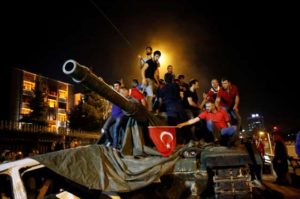I am being tugged slowly into a form of an identity crisis.
It deals with my ethnic heritage.
You’ve seen those incessant TV commercials, I’m sure, about the people who thought they were derived from some ancestral background, only to find out their roots were planted elsewhere. The guy who thought he was German, bought the requisite clothing, and then learned he is of Scottish descent? He’s my favorite.
Here’s the deal with yours truly.
I have spent my entire life believing I am one of those rare pure-bred Americans. My last name is Greek. My parents were born in the United States of America. All four of my grandparents were immigrants.
Dad’s parents came from southern Greece, the Peloponnese. Mom’s parents came from Marmara, an island in the Sea of Marmara, the body of water that separates the European portion of Turkey from the part that’s in Asia.
My maternal grandmother always spoke proudly of her Greek ethnicity. I believed her. Nearly 40 years after her death, I still do.
Now, though, the slightest twinge of doubt is starting to creep into my skull. It concerns Mom’s branches on the family tree.
My grandparents, and their ancestors, were surrounded by Turks. They lived in fairly primitive conditions on Marmara. Is it possible that one or more of them might have been smitten by a Turkish neighbor? Might they have, oh, acted passionately on those feelings in the dead of night, away from prying eyes?
What’s more, might there even have been a visitor from, say, Bulgaria or Russia who ventured onto the island? Might said visitor have consorted with a distant member of my family?
Remember, too, the history between the Greeks and Turks. The Ottoman Empire controlled Greece for hundreds of years until the 19th century. The Greek war of independence ended that domination, but the nations have fought many conflicts over the years since that time. They remain to this day wary of each other; they cannot even decide which of the Aegean Sea islands belong to Greece and which of them belong to Turkey.
Still, I see these commercials that tell us about DNA tests that prove beyond a doubt our ethnic makeup.
Here’s where the identity crisis gets even more dicey for me. I am not sure I want to know. Moreover, were I to learn that the “truth” behind my ethnic background is different than what I have thought my entire life, would I be willing to share it?
Science has this way of complicating matters … you know?


